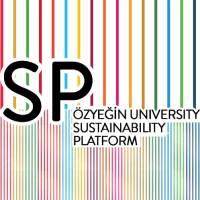Sustainability in Business: Data Set Generation and Economics-Based Modelling

Project Manager:
Mehmet Ali Soytaş, Meltem Denizel
Section:
Economics
Research Areas:
econometrics, business economics, applied microeconomics
Project Start Year:
2014
Project End Year:
2016
Phone:
0 216 564 94 38
E-Mail:


About the Project:
This project aims to generate a data set which would enable us to examine the relationship between sustainability and financial performance within a global framework and to form a research framework in which various management-based theories could be tested by using that particular data set.
Project Finding:
The existing empirical literature on the relationship between corporate sustainability performance and corporate financial performance casts doubt on the direction of this relationship. The affect of sustainability on financial performance is mostly estimated as positive, but there are considerable amount of studies that find a negative relationship and in some studies results are indecisive. Especially, since studies documenting a positive relationship between employ different data sets and variables, there is no scientific base to reach a consensus on the direction of the link between corporate sustainability performance and corporate financial performance. In the Turkish literature most studies present statistically inadequate results due to limited sample sizes. Thus, it is obvious that a comprehensive and reliable data set that can be used in both international and Turkish literature is needed. In the scope of this project a comprehensive data set has been created and the relationship between corporate sustainability and financial performance has been investigated using this data set. Literature presents a gap in addressing the mechanism(s) of the relationship that hinders the convergence of the empirical findings: endogeneity. The study addresses the potential endogeneity problem in the relationship and identify the possible causes of this endogeneity as: (i) firm level heterogeneity in financial returns, (ii) the relationship between firm’s productivity level and the marginal cost of sustainability initiatives, and (iii) measurement error. We implement Instrumental Variable (IV) technique to overcome these biases. Our results obtained from the dataset consisting of North American companies present empirical evidence to support the hypothesis that corporate sustainability is positively related (possibly causally) with corporate financial performance. We further find that sustainability initiatives are costlier for companies that are more productive; thus, they have less incentive to invest. Finally, measurement error in the sustainability metrics does not play a crucial role. We empirically show that the IV approach eliminates the impact of inherent productivity bias as well as certain potential measurement errors. The results from the data set consisting Turkish companies suggest that there is significant positive effect of sustainability on financial performance although this relationship might not be causal. Furthermore, Turkish firms with foreign corporate partners perform better both in terms of sustainability and financial performance compared to their pure domestic counterparts. We establish developing an innovative technological infrastructure (creating a sustainability index and understanding the building blocks of existing indexes) to measure and evaluate the sustainability investments of companies as roadmap following the completion of the project. Thus, we aim to increase the availability of high quality, timely and reliable data in line with the sustainability goals, which support domestic technology development, research and innovation in developing countries. The project has achieved to add knowledge on existing sustainability measures and to support statistical capacity of developing countries and continues to increase the capacity after the completion of the project which is one of the most important objectives of sustainable development goals.
Goal:
SDG 9, SDG 17
Target:
SDT 9.5, SDT 17.14, SDT 17.18, SDT 17.19
